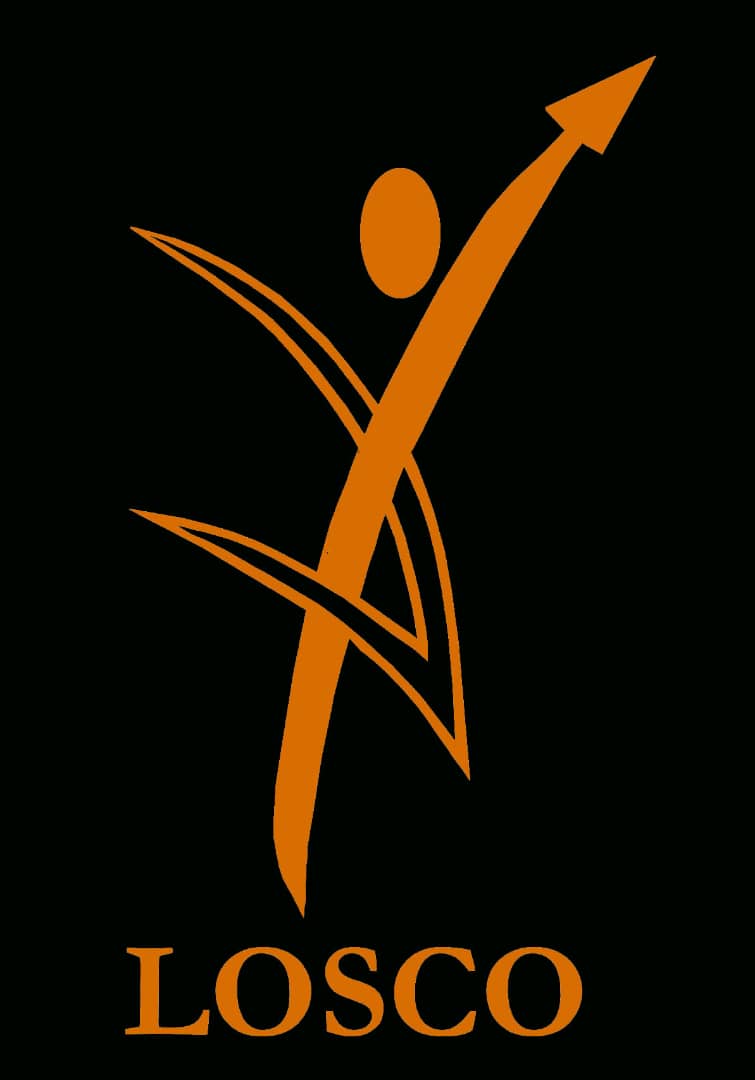ENVIRONMENT & CLIMATE CHANGE
FOOD AND WATER INSECURITY IS
EXPECTED TO GROW THROUGH CLIMATE-DRIVEN ACTIVITIES
Global
warming of 1.1°C above pre-industrial levels has been caused by over a century
of burning fossil fuels and unequal, unsustainable energy and land use. This
has led to an increase in the frequency and intensity of extreme weather
events, which have caused dangerous impacts on nature and people worldwide.
Each
increment of warming results in rapidly escalating hazards, such as more intense
heatwaves, heavier rainfall, and other weather extremes that increase risks for
human health and ecosystems. Climate-driven food and water insecurity is
expected to increase with increased warming. When these risks combine with
other adverse events, such as pandemics or conflicts, they become even more
difficult to manage.
To
close the gap between existing adaptation and what is needed, accelerated
action to adapt to climate change is essential in this decade. Keeping warming
to 1.5°C above pre-industrial levels requires deep, rapid, and sustained
greenhouse gas emissions reductions in all sectors. Emissions should be
decreasing by now and will need to be cut by almost half by 2030 if warming is
to be limited to 1.5°C
For
instance, access to clean energy and technologies can improve health,
especially for women and children. This calls for integration of SRHR and
Services in Climate Justice Programming. Low-carbon electrification, walking,
cycling, and public transport can enhance air quality, improve health,
employment opportunities, and deliver equity. Economic benefits for people’s health
from air quality improvements alone would be roughly the same, or possibly even
larger than the costs of reducing or avoiding emissions.
Climate-resilient
development becomes progressively more challenging with every increment of
warming. Therefore, the choices made in the next few years will play a critical
role in deciding the future of our planet and the generations to come.
To
be effective, these choices need to be rooted in our diverse values,
worldviews, and knowledge, including scientific knowledge, Indigenous
Knowledge, and local knowledge. This approach will facilitate climate-resilient
development and allow locally appropriate, socially acceptable solutions. Locally
led knowledge and resources in the process can be key and yet cost effective
and much sustainable. Let’s shift the power back to Communities and this fear
will be checked.
The
scale of recent changes across the climate system as a whole – and the present
state of many aspects of the climate system – is unprecedented over many
centuries to many thousands of years. Approximately 3.3 to 3.6 billion people
live in contexts that are highly vulnerable to climate change. Vulnerability of
ecosystems and people to climate change differs substantially among and within
regions.
If
global warming transiently exceeds 1.5°C in the coming decades or later, then
many human and natural systems will face additional severe risks, compared to
remaining below 1.5°C.
You
and I are vehemently responsible for the change that we need to see.
NEXT ARTICLE
The Fingerprint on Greenhouse Gases by Humanity
As Climate change is referred to as the long-term shifts in temperatures and weather patterns. Such shifts can be natural, due to changes in the sun’s activity or large volcanic eruptions. But since the 1800s, human activities have been the main driver of climate change, primarily due to the burning of fossil fuels like coal, oil and gas. Burning fossil fuels generates greenhouse gas emissions that act like a blanket wrapped around the Earth, trapping the sun’s heat and raising temperatures.
In Kigezi Sub Region of Uganda, the climate in the nineties used to be super cold because of the abundance of Wetland Cover and one would only see the Sun after midday during Summer but all that has changed were the human activities do impact the land cover thus affecting the temperatures.
There are some basic well-established scientific links:
The concentration of GHGs in the earth’s atmosphere is directly linked to the average global temperature on Earth; This concentration has been rising steadily, and mean global temperatures along with it, since the time of the Industrial Revolution;
The most abundant GHG, accounting for about two-thirds of GHGs, carbon dioxide (CO2), is largely the product of burning fossil fuels.
The new Emissions Gas Report by the UN Environment Programme finds that there has been progress since the Paris Agreement was signed in 2015. Greenhouse gas emissions in 2030, based on policies in place, were projected to increase by 16 percent at the time of the agreement’s adoption. Today, the projected increase is 3 per cent. However, predicted 2030 greenhouse gas emissions still must fall by 28 per cent for the Paris Agreement 2°C pathway and 42 per cent for the 1.5°C pathway.
Unless we radically take the Bold Steps to avert this trend, we are headed for unpleasant times ahead.
NEXT ARTICLE
THE STAND FOR HER LAND CAMPAIGN LAUNCH IN UGANDA
Stand 4 Her land Campaign has an enormous ambition of making land rights a reality for millions of women around the world, including our beloved country Uganda and it works through collective country led advocacy aimed at closing the implementation gaps between normative aspirations reflected in Uganda’s laws and the lived realities and practice in regards to women’s land rights.
It’s well understood the nature of Tenure in Uganda, this can be dealt with through removing the social, and structural barriers that prevent women from exercising their land rights and ensuring that land tenure governance, reforms and processed equitably include and benefit women.
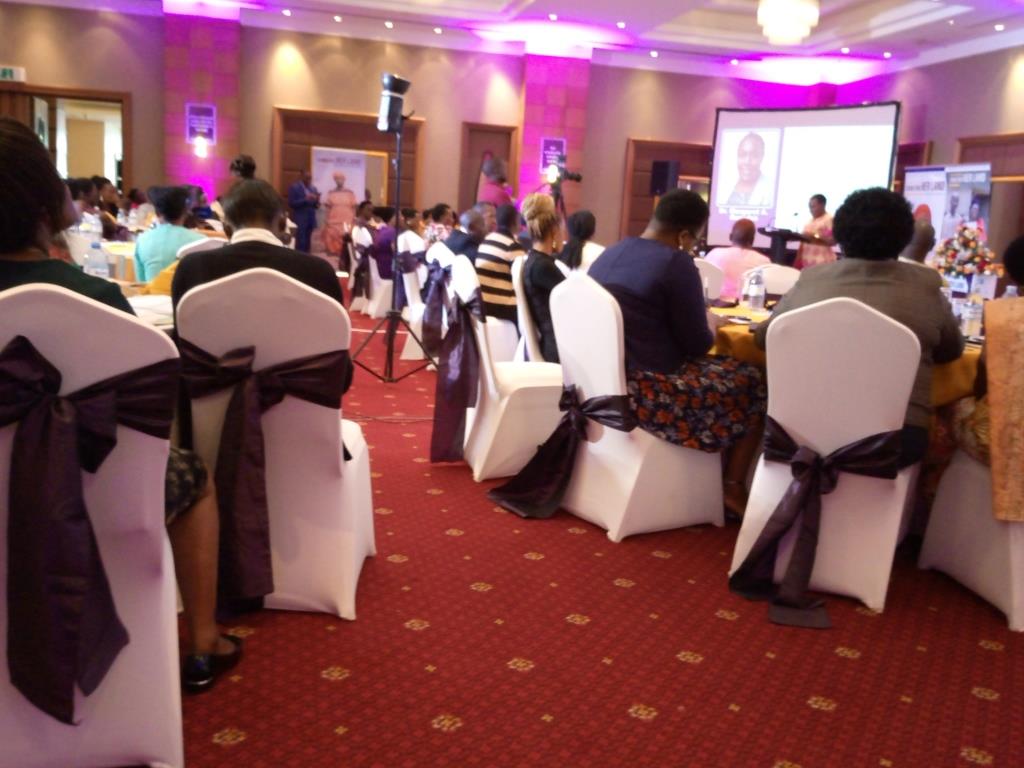
LOSCO in Partnership with UCOBAC and NLC-U envisages the five key campaign strategic advocacy priority areas to actualize the women’s land rights. They include transformation of social norms and cultural practices that prevent women from accessing, owning and controlling land; adequate financing, skilling and capacitating of land governance institutions to support WRL; increased legal literacy on WLRs for all, enhanced access to land justice for women; and strengthened participation, voice and agency of grassroots women in land governance.
The need to move from Talk to Action especially the need to understand Land in relation to Climate Change considering the linkage through Recognizing the role that Land plays in Climate – Providing and holding resources. Western economies pay to keep the natural resources. Who are the best people to keep? the owners. Avail Alternatives. Maintain the Carbon sinks intact i.e Swamps and Forests.
Address peer pressure for men taking equal stand as women. Empower men too because Titling cannot solve women’s land issues.
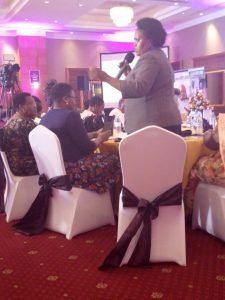 JUSTIFICATION FOR WOMEN’S LAND RIGHTS
JUSTIFICATION FOR WOMEN’S LAND RIGHTS
Has it matured or retrogressed? Human Rights Argument trying to enlight that women have the right to own and possess property too.
Equity, women over 50% of the population and more than 70% in Agriculture.
Thus, Women would have more rights to own the Land. Enable the Woman to Clearly and resourcefully empower the owners of this Land.
Consider Succession Act, CEDAW, ICSER
Administrative Regulations and need to fill the big gap that exists in implementation of the Law…
Land Rights Laws for women have existing controversies for instance Marriage is upon Canon Law and divorce is done via Statutory Law….
The issue of Duty bearers in public offices that facilitate corruption through bureaucratic tendencies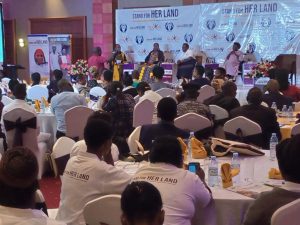
RECOMMENDATIONS
– Land Rights are personal with societal implications. They are interpersonal. Get to private spaces for influence to Materialize.
– Appeal to the man to appreciate the need for inclusion of women in the titles.
– Do stakeholder analysis for collaborative traction and involve program style interventions than Project ones. Consider prevalence than severity
– Interventions need maturity periods. The political will has a telling impact. Work on women as a Constituency.
– The campaign can target CP LCIII and V to nominate strategic women on the Committees. Target the duty bearers. That is Practice Activism.
There is no Blue print on how National policy is incorporated into Land Rights.
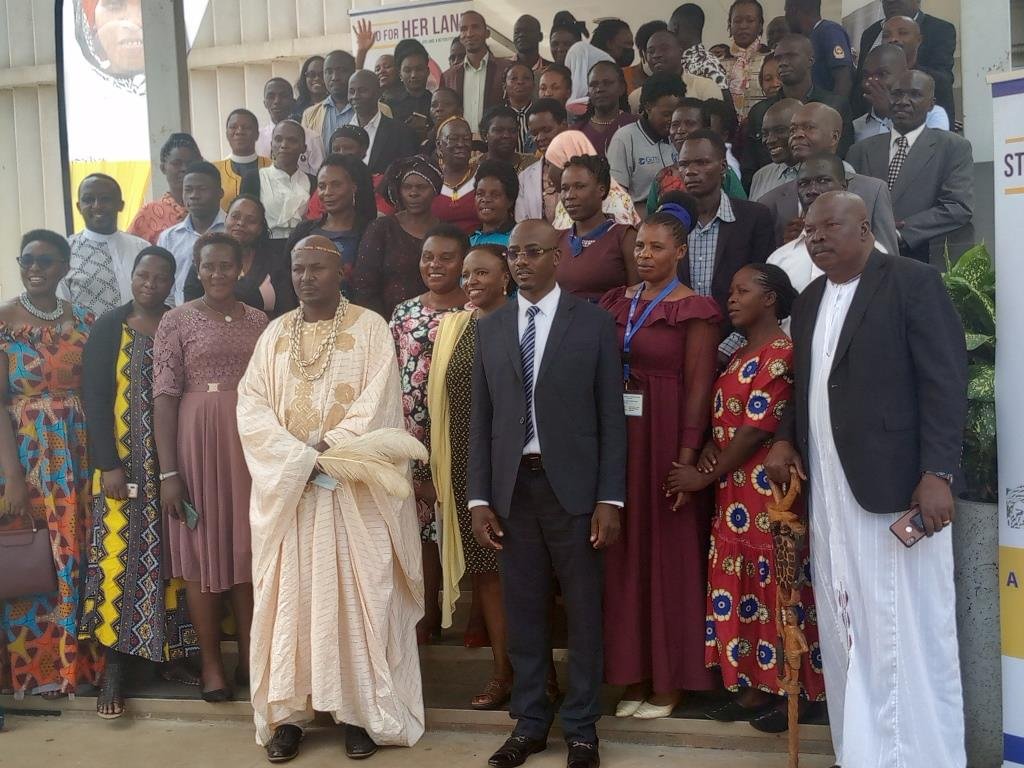
NEXT ARTICLE
USING HUMAN RIGHTS BASED APPROACH TO TACKLING THE EFFECTS OF CLIMATE CHANGE
Dunia Nzuri Climate Outreach (DNCO) & EAPN Partnership Meeting
LOSCO a Human Rights Organisation in Kigezi has been doing some around Climate Change and Environmental justice especially doing advocacy work for people who are being threatened with evictions from the low lands and swamps that have been occupied for over 70 years with no alternative livelihoods. LOSCO has been on the forefront in this effort doing Radio talk shows and community dialogues on the same.
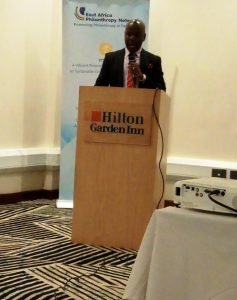 LOSCO also did a Tree planting activity in the communities of Kyanamira Sub Country during the time the area was heavily flooding and experiencing mudslides which was a welcome intervention. This was done in partnership with OXFAM where over 2000 Fruit tree seedlings were distributed in the subcounty to both protect the environment and give food to the beneficiaries.
LOSCO also did a Tree planting activity in the communities of Kyanamira Sub Country during the time the area was heavily flooding and experiencing mudslides which was a welcome intervention. This was done in partnership with OXFAM where over 2000 Fruit tree seedlings were distributed in the subcounty to both protect the environment and give food to the beneficiaries.
LOSCO has so far had two meetings with the Regional Mineral Police to discuss the issues of Pollution in the mineral rich areas of Buhara Sub County in Kabale where a chinese company was contracted to extract Iron Ore which the RDC with other Duty bearers intervened and was able to be brought to a common understanding.
LOSCO was also in the last month able to meet with a Team from Margret Pyke Trust in a bid to establish a partnership that would see us work on building capacity for stakeholders on integrating SRHR and Climate change Programs since the most affected populations are women and Children in school and agriculture.
Through the same project, LOSCO in partnership with YADNET, International Crane Foundation (ICF), Uplift Rural Poor, Reproductive Health Uganda (RHU), and Conservation Through Public Health (CTPH)., in Kigezi region were identified to kick start the regional integration agenda. And among others are Policy reviews on National Climate Change Policy, National Environment Policy, National Determined Contributions (NDCs) which have also been seen to have some gaps in as far as HRBA is concerned.
LOSCO is also continuing to have conversations concerning land Rights in mineral rich areas where there are forced evictions and encroachment and this would have to be attended to swiftly.
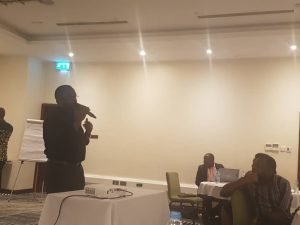 LOSCO has also been having strategic conversations with SRHR & CJ based in Brooklyn, NY; being a member of the coalition to forge ways of getting to the best means of averting the Climate Change that is having a Global Impact.
LOSCO has also been having strategic conversations with SRHR & CJ based in Brooklyn, NY; being a member of the coalition to forge ways of getting to the best means of averting the Climate Change that is having a Global Impact.
There are also evictions for Batwa communities with no viable alternatives for livelihoods which LOSCO is also continuing to push for better livelihoods and has so far built over 45 Houses and resettled different households in partnership with missionary friends attached to Hope Mission Uganda.
Through EAPN and DNCO, LOSCO will be able to bring together Stakeholders to promote philanthropy building a partnership around Public Private Partnership Concept and creating learning platforms where Climate Change will be streamlined.
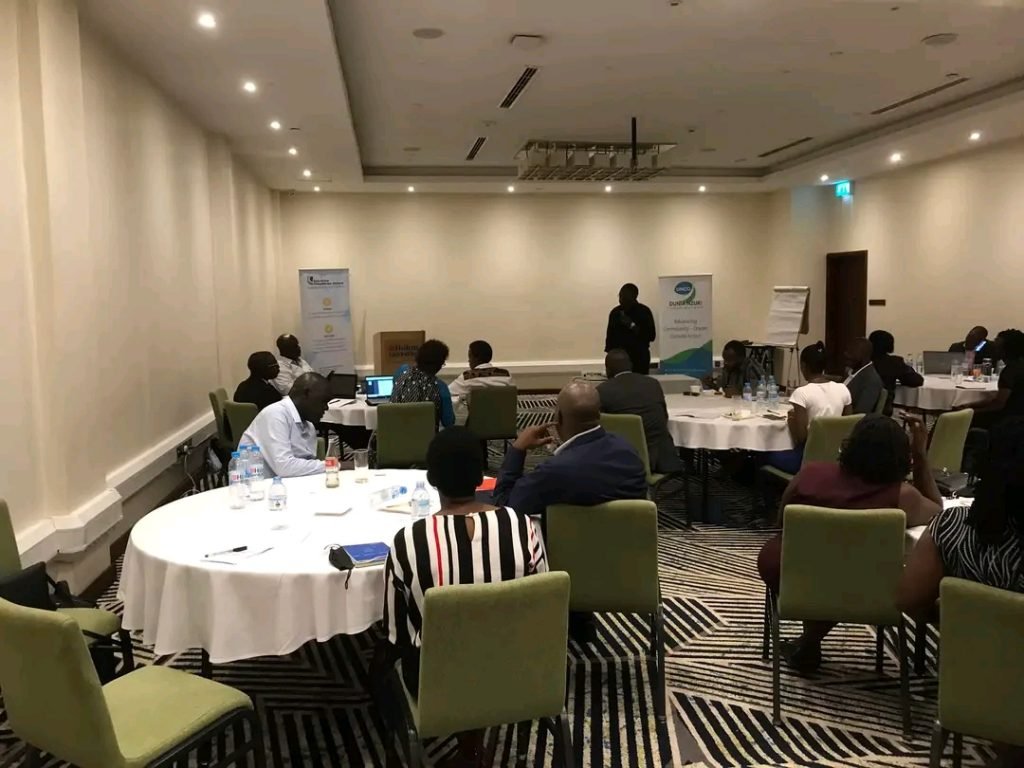 For this to be realised, there is need to trickle down the cause effect analysis to be able to identify and isolate the major concerns for action. This will include looking more into Gender in climate Change, connecting policy to Action, Doing more research and sharing information and Partnership and collaboration.
For this to be realised, there is need to trickle down the cause effect analysis to be able to identify and isolate the major concerns for action. This will include looking more into Gender in climate Change, connecting policy to Action, Doing more research and sharing information and Partnership and collaboration.
NEXT
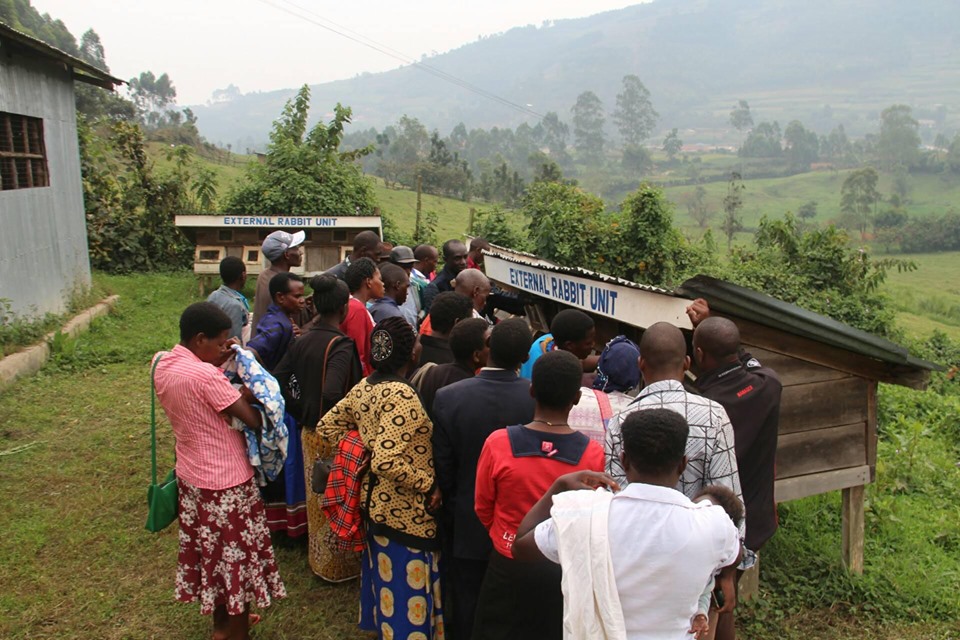
Climate Change Trainings, Budget Advocacy & HRBA Support
NEXT
After empowering the rural farmers with skills in Rabbit rearing, LOSCO in partnership with KIHEFO gave a start up to some of the farmers for their income boost in families and villages.
.
